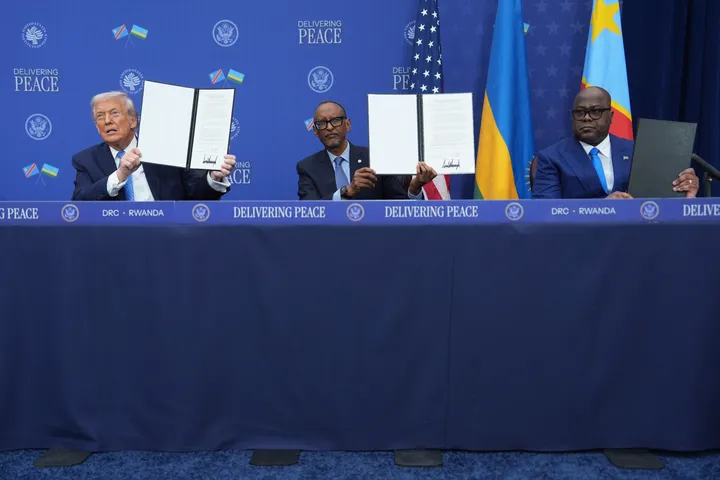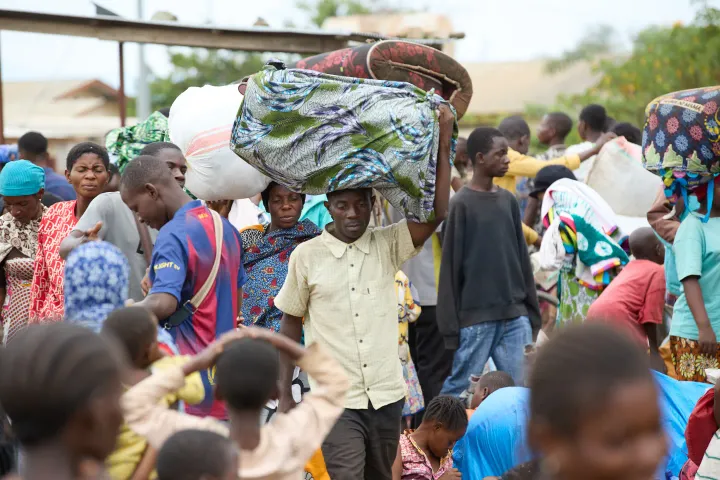South African President Cyril Ramaphosa said on Monday that a process should be set in place for the withdrawal of “uninvited foreign armed forces” from the Democratic Republic of Congo (DRC).
“We have a responsibility to support all efforts to bring peace and stability to our fellow African nation, which has been racked by war for more than three decades,” Ramaphosa said in a statement after a joint summit of the East African Community (EAC) and the Southern African Development Community held on Friday and Saturday.
He highlighted that several EAC countries, including Uganda, Burundi, Tanzania and Rwanda, share borders with DR Congo and are “directly impacted” by the escalation in the east of the country.
The joint summit "affirmed the independence, sovereignty and territorial integrity of the DRC," said Ramaphosa." This means that a process must be developed for uninvited foreign armed forces to withdraw from the DRC."
Unprecedented heads of state summit
While Ramaphosa did not single out any specific country, Kinshasa blamed Rwanda for backing the M23 rebels and accused Kigali of sending its forces to eastern DR Congo when the latest offensive began. Kigali has repeatedly denied allegations of backing M23.
He also said that measures taken in the summit would “finally lead to the drawdown” of the troops from the SADC mission in Congo.
The unprecedented summit, hosted by Tanzanian President Samia Suluhu Hassan in Dar es Salaam brought together heads of state from the eight-member EAC and the 16-member SADC.
Defence chiefs of the two African blocs were asked to meet within five days to provide technical direction to implement a ceasefire and secure Goma.
M23 claim control of Goma
The joint meeting of the ministers will be convened within 30 days to review the progress of the defence chiefs' directives.
The M23 rebels now claim control of Goma and have declared their own administration in the city.
Since January 26, more than 3,000 people have been killed, 2,880 injured, and over 500,000 displaced, adding to the 6.4 million already internally displaced people, according to the UN.
➤Click here to follow our WhatsApp channel for more stories.
























